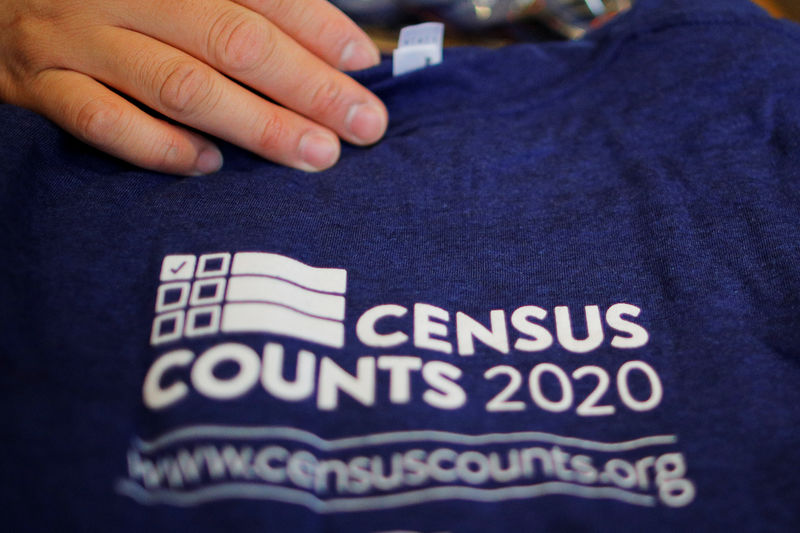By Tom Hals
(Reuters) - The Trump administration has few realistic options to get a citizenship question onto next year's census, but by keeping the issue in the public eye it could still trigger an undercount of residents in Democratic-leaning areas, legal and political experts told Reuters.
Constant media coverage linking citizenship and census forms could scare undocumented immigrants away from responding and rally U.S. President Donald Trump's base to participate, they said. That, in turn, would help redraw voting districts across the country in favor of his Republican party, encouraging the president to pursue a legal battle that he has little chance of winning.
The latest parlay came on Sunday evening, when the U.S. Department of Justice installed a new team of lawyers to handle the last iterations of litigation that has been going on for more than a year.
"Even if the question is (taken) off, if people are tweeting as if it may be a real possibility, it continues to raise fears and depress the count," said Thomas Wolf, a lawyer who focuses on census issues at the Brennan Center for Justice.
The U.S. Constitution requires the government to count all residents - whatever their legal status - every 10 years. The information collected becomes the basis for voting maps and distributing some $800 billion in federal funds each year.
It is illegal for the Census Bureau to share information about individuals with law enforcement or immigration authorities. But the idea of asking residents about citizenship status has nonetheless stoked fears that the survey would become a tool for the Trump administration's hardline immigration policies.
The president and his allies have said it is important to know about citizenship status, and characterized the question as something that should not draw controversy.
"So important for our Country that the very simple and basic 'Are you a Citizen of the United States?' question be allowed to be asked in the 2020 Census," the president tweeted on July 4.
A Reuters poll earlier this year also showed 66% of Americans support its inclusion.
But demographers, advocacy groups, corporations and even the Census Bureau's own staff have said the citizenship question threatens to undermine the survey.
Communities with high immigrant and Latino populations could have low response rates. Researchers have estimated that more than 4 million people out of a total U.S. population of some 330 million may not participate.
That would benefit non-Hispanic whites, a core part of Trump's support, and help Republicans gain seats in Congress and state legislatures, critics have said.
The question seemed dead in June, when the Supreme Court blocked it, saying the administration had given a "contrived" rationale for its inclusion.
However, the high court left open the possibility that the administration could offer a plausible rationale. Department of Justice lawyers said on Friday that they were exploring other explanations. Trump also said he may try to force it into the survey through an executive order.
Legal experts immediately slapped down the ideas. It will be hard to convince justices that a new explanation is not also contrived, and an executive order would not override the Supreme Court decision or undo other court orders blocking the citizenship question, they said.
"There is nothing talismanic about an executive order," said a statement from Thomas Saenz, the president and general counsel of MALDEF, a Latino rights group pursuing one of the cases against the administration. "Our government is not a dictatorship."
Trump also said on Friday that although census forms are already being printed, the government could later produce "an addendum."
It is not clear how that might work, but census experts said it would be an unprecedented disruption to a process that has been in motion for years.
"Any suggestion that on a moment's notice the Census Bureau could add an extra piece of paper with an additional question to a census that it has been planning literally for a decade demonstrates a breathtaking ignorance of what it takes to pull off a census," said Terri Ann Lowenthal, a census consultant.
An addendum would also likely be challenged in courts for running afoul of various administrative laws.
On Friday, the American Civil Liberties Union filed a motion https://www.aclu.org/legal-document/motion-amend to prevent the citizenship question from being added.
In the meantime, attention surrounding the legal debacle may already be hurting the census and helping Trump achieve his goals, said Jessica Levinson, a professor at Loyola Law School in Los Angeles.

"The longer he has this conversation, the worse it is for an accurate census count," she said.